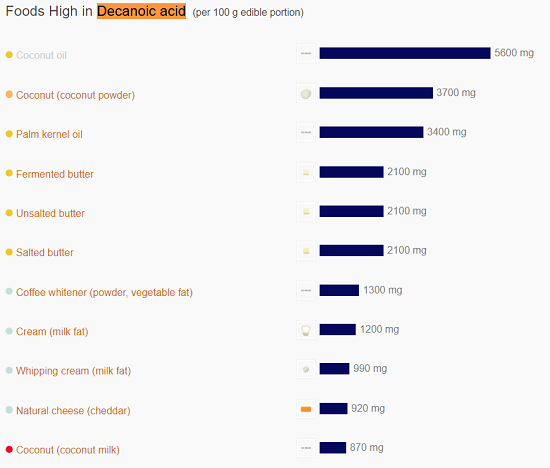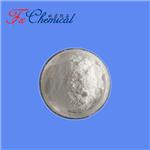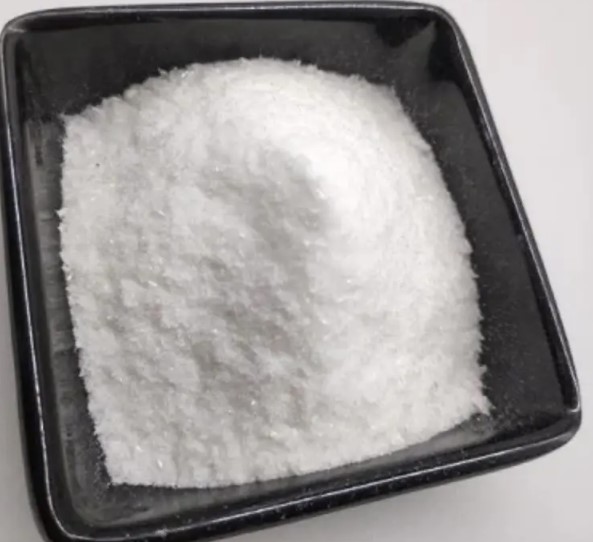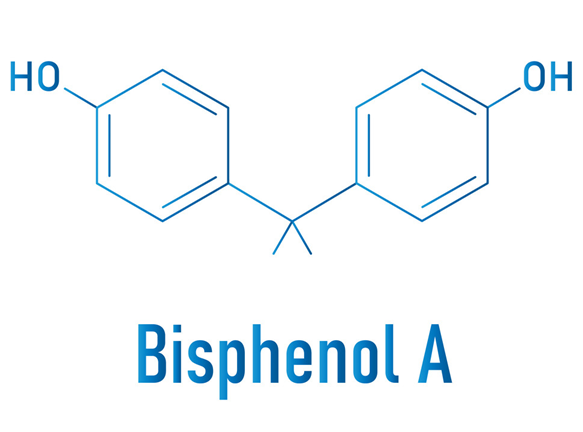Decanoic acid: Source and Hazard
Introduction
Decanoic acid is a C10, straight-chain saturated fatty acid. It has a role as an antibacterial agent, an anti-inflammatory agent, a human metabolite, a volatile oil component, a plant metabolite and an algal metabolite. The proteins that decanoic acid targets include furin, octanoyltransferase, 3-oxoacyl-[acyl-carrier-protein] synthase 1, peptostreptococcal albumin-binding protein, and putative uncharacterized protein tcp14.
Source

Decanoic acid is a medium-chain saturated fatty acid commonly found in various dietary sources such as coconut oil, palm oil, dairy products, and fish (eel and salmon)[1].
Biological functions
Decanoic acid is also one of the major components of the ketogenic diet (KD) and plays an important role in it. This may be because it is easily converted into ketones in the liver, which serve as an alternative energy source for the brain and other tissues. In addition, decanoic acid has unique properties compared to other fatty acids. Studies have found that decanoic acid has powerful anticonvulsant properties, which are especially beneficial for people with epilepsy. In addition, it is believed to have improved mitochondrial function, antioxidant, and regulated blood lipid and glucose levels.
Hazard
The mutagenic activity of decanoic acid has been evaluated in a bacterial reverse mutation assay conducted equivalent to OECD TG 471 using the preincubation method. Salmonella typhimurium strains TA97, TA98, TA100, TA1535, and TA1537 were treated with decanoic acid at concentrations up to 666 μg/plate. No increases in the mean number of revertant colonies were observed at any tested concentration in the presence or absence of S9. Under the conditions of the study, decanoic acid was not mutagenic in the Ames test.
In addition, the weight of evidence (WoE) was made to nonanoic acid. The mutagenic activity of nonanoic acid has been evaluated in a bacterial reverse mutation assay conducted in compliance with GLP regulations and in accordance with OECD TG 471 using the standard plate incorporation method. Salmonella typhimurium strains TA98, TA100, TA1535, TA1537, and Escherichia coli strain WP2uvrA were treated with nonanoic acid in dimethyl sulfoxide (DMSO) at concentrations up to 5000 μg/plate. No increases in the mean number of revertant colonies were observed at any tested concentration in the presence or absence of S9. Under the conditions of the study, nonanoic acid was not mutagenic in the Ames test, and this can be extended to decanoic acid.
References:
[1] ZHIJIAN WU. Relationship between Dietary Decanoic Acid and Coronary Artery Disease: A Population-Based Cross-Sectional Study.[J]. Nutrients, 2023, 15 20. DOI:10.3390/nu15204308.You may like
Related articles And Qustion
Lastest Price from Decanoic acid manufacturers

US $0.00-0.00/kg2025-08-07
- CAS:
- 334-48-5
- Min. Order:
- 1kg
- Purity:
- 99%
- Supply Ability:
- 20MT

US $0.00/kg2025-04-21
- CAS:
- 334-48-5
- Min. Order:
- 25kg
- Purity:
- 99%min
- Supply Ability:
- 1000kg



